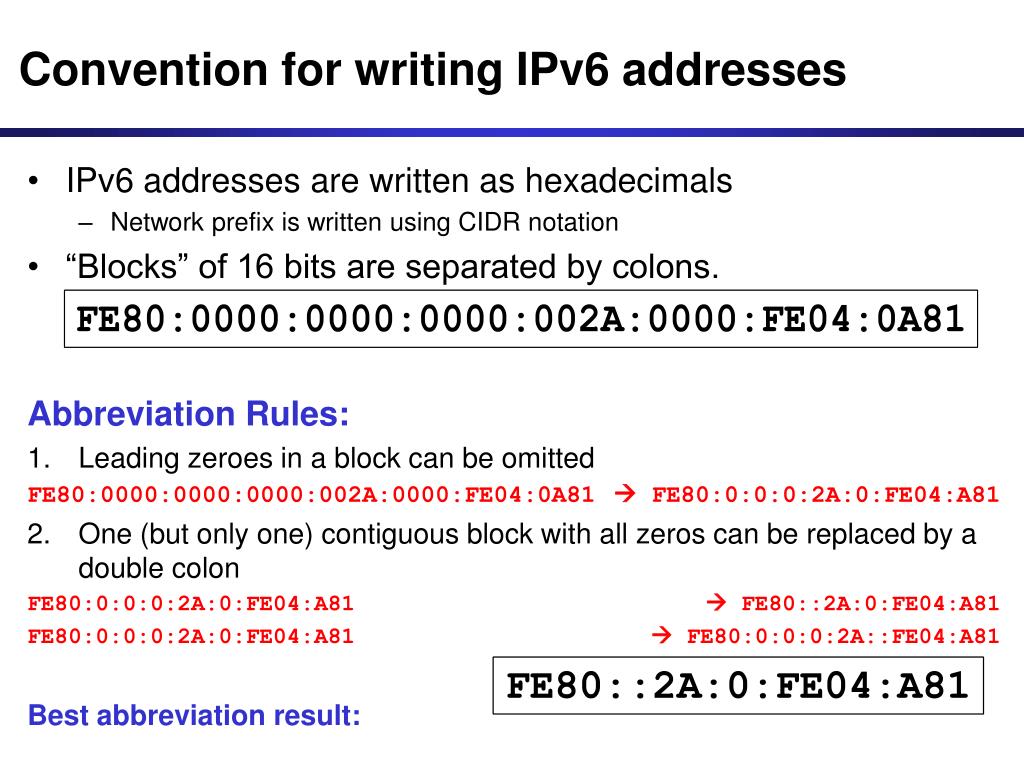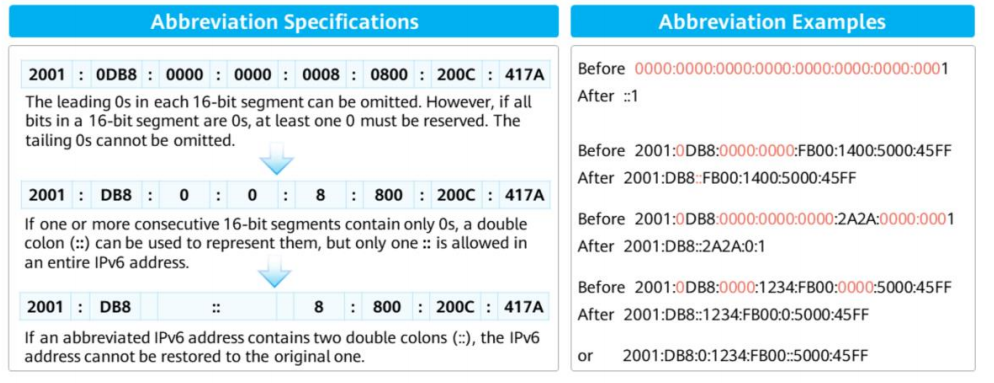

The table below shows the examples of omitting leading 0s from the IPv6 address. This rule only omits leading 0s, not trailing 0s, otherwise, the address would be ambiguous. Following are the examples to omit any leading 0s (zeros) in any 16-bit section or hextet: Omitting leading 0 is the first rule to reduce the notation of IPv6 address. However, there are two rules we can apply to reduce the number of digits needed to represent an IPv6 address.


The ideal method of representing IPv6 address is groups of eight hextet (32 hexadecimal digits). The basic relationship table of binary, decimal, and hexadecimal is following. If we convert one hextet into binary it should be 16 bits, for example, we have a hextet “0000” it is equal to 0000000000000000 (16 time 0s) and hextet “ FFFF” is equal to 1111111111111111 (16 tim1 1s). So each “x” is a single hextet, 16 bits or four hexadecimal digits. The preferred format for writing an IPv6 address is x: x: x: x: x: x: x: x, where each “x” is the group of four hexadecimal digits and each group contains 16 bits. The address can be written both lowercase or in uppercase. A packet sent to a multicast address is delivered to all interfaces identified by that address.The length of IPv6 addresses are 128 bits and represented as eight groups of four hexadecimal digits each, each group representing 16 bits. A packet sent to an anycast address is delivered to one of the interfaces identified by that address.Īn anycast address identifies a set of interfaces (typically belonging to different nodes).

Global unicast addresses are globally routable and reachable on the IPv6 portion of the Internet.Ī prefix for link local addresses is always FE80::/64 with the interface ID be 64-bit length.Ī multicast address identifies multiple interfaces (typically belonging to different nodes). A packet sent to a unicast address is delivered to the interface identified by that address.įor the Unicast IPv6 Addresses, there are many types: Global unicast addresses, Link local addresses etc. In general, there are three types of IPv6 address: Unicast IPv6 Addresses, Multicast IPv6 Addresses and Anycast IPv6 Addresses.Īn unicast address identifies a single interface within the scope of the type of unicast address.


 0 kommentar(er)
0 kommentar(er)
